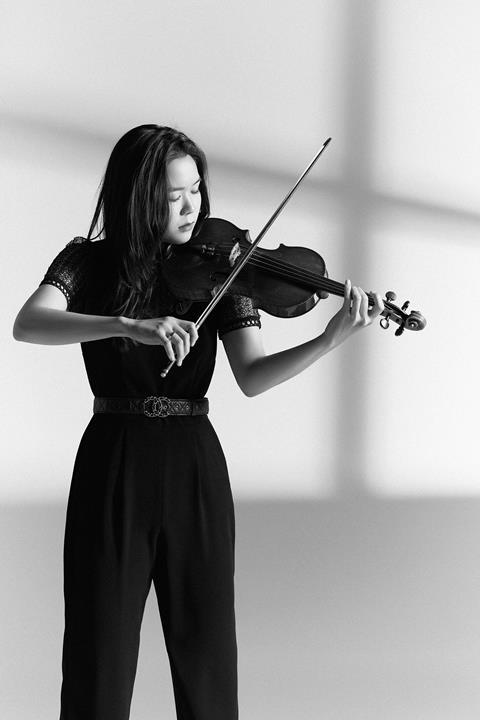Ahead of a world premiere on 20 March, the violinist speaks to The Strad about Raymond Yiu’s Violin Concerto, which recalls the troubled life of Chinese musician Ma Sicong

Discover more Featured Stories like this in The Strad Playing Hub
Raymond Yiu’s first Violin Concerto, specially written for Esther Yoo, will receive its world premiere at Barbican Centre with BBC Symphony Orchestra and Clemens Schuldt. Yoo speaks to The Strad about the new work, which recalls the troubled life of Ma Sicong, a great musician and educator forced to flee Mao’s China during the Cultural Revolution.
Tell us a little bit about the concerto - what’s it about, and how did you and Raymond end up working together?
Raymond and I first met several years ago at a concert we were both part of and we have stayed friends ever since. I have long been an admirer of his compositions and I was truly honoured when he wanted to write his first-ever violin concerto for me. Much of the piece is inspired by the life of the legendary Chinese violinist and composer, Ma Sicong, and the key themes of the concerto are exile and homesickness.
Raymond has written this concerto for you - did you collaborate much together? Tell us a bit about some of the challenges in the piece, as well as some of the joys.
It is always special to work on premieres and it feels even more significant to work on such a project with a friend. The communication between us is very clear and easy and I think it’s safe to say that we both enjoy the collaborative aspect very much!
The overall structure is quite interesting as Ray has rethought the traditional format of a concerto and the most substantial movement in his concerto is the final movement, with all three previous movements leading up to it.The movements are incredibly distinct not only in character but also in the inspiration they were drawn from.
Throughout the concerto you can be transported to different time periods in China, really feeling the history, culture, and hearing the country’s traditional music and instruments as well. The third movement is entirely for solo violin which is quite unique!
You’ve just come off the back of concerts with New York Philharmonic and the Philharmonia - how do you make sure you have enough time to prepare for the new concerto, as well as keeping your current repertoire in shape?
It has been an exciting and busy few months for me as recently I’ve been performing in a different city every week with different repertoire. It can be challenging at times but I enjoy what I do tremendously and there’s never a dull moment!
I think practising pieces in stages helps and having a plan of how to advance the stages as the concert day approaches is usually helpful for me.
What are you most looking forward to in the premiere performance on 20 March?
Bringing this new piece to life! I feel honoured to perform the premiere of Ray’s first violin concerto and I’m very excited to share this special moment with Ray, the BBC Symphony, Maestro Clemens Schuldt and of course our audience at the Barbican!
Esther Yoo will perform the world premiere of Raymond Yiu’s Violin Concerto on 20 March 2024 at London’s Barbican Hall with the BBC Symphony Orchestra and Clemens Schuldt. Find out more here.
Read: Esther Yoo: A sunny disposition
Watch: Shift in Perspectives & Mental Health: Esther Yoo chats with Julia Bullock
Read: Dragonflies, monsoons and the Somali Jet inspire a new violin concerto for Johan Dalene
Read more Featured Stories like this in The Strad Playing Hub
The number one source for playing and teaching books, guides, CDs, calendars and back issues of the magazine.
In The Best of Technique you’ll discover the top playing tips of the world’s leading string players and teachers. It’s packed full of exercises for students, plus examples from the standard repertoire to show you how to integrate the technique into your playing.
The Strad’s Masterclass series brings together the finest string players with some of the greatest string works ever written. Always one of our most popular sections, Masterclass has been an invaluable aid to aspiring soloists, chamber musicians and string teachers since the 1990s.
American collector David L. Fulton amassed one of the 20th century’s finest collections of stringed instruments. This year’s calendar pays tribute to some of these priceless treasures, including Yehudi Menuhin’s celebrated ‘Lord Wilton’ Guarneri, the Carlo Bergonzi once played by Fritz Kreisler, and four instruments by Antonio Stradivari.
Reference













































No comments yet